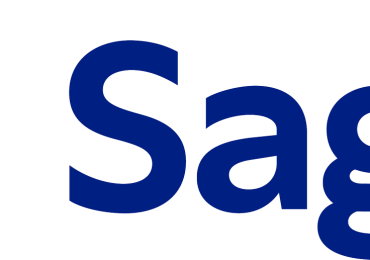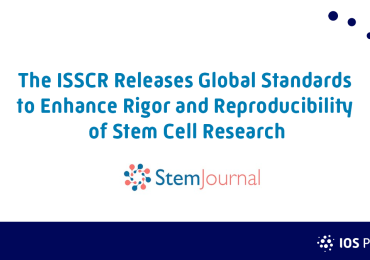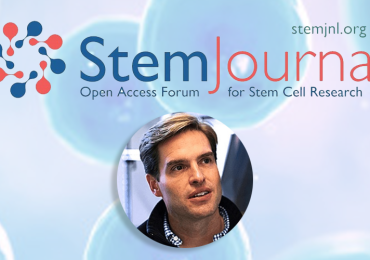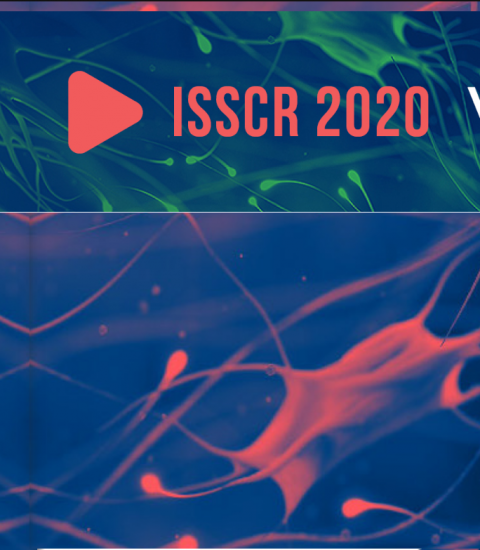
Skokie, IL, USA – ISSCR has announced its 2020 conference program will move to a virtual platform as a response to the COVID-19 restrictions. Thousands of delegates and exhibitors – including the StemJournal team – cannot be in Boston this July as originally had planned. The great news is that the ISSCR annual scientific meeting will be transformed into a virtual experience, bringing the global stem cell community together to share knowledge, collaborate, and network.
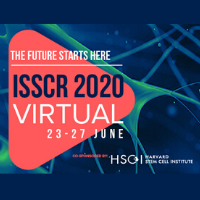
ISSCR 2020 Virtual, cosponsored by the Harvard Stem Cell Institute (HSCI), will deliver a comprehensive scientific educational programming that includes plenaries featuring world-renowned scientists in the field. The event takes place June 23–27, 2020. Following are some highlights of the program:
ISSCR Response to COVID-19
Featuring Opening Address by Dr. Anthony Fauci, Director, National Institute for Allergy and Infectious Diseases
The COVID 19 pandemic has mobilized the global scientific and clinical communities from across disciplines. This collective effort is essential to understand the biology of the novel coronavirus infection process, the resulting clinical pathology and develop potential treatments, including a vaccine. In this session, the ISSCR brings together leading scientists to discuss the latest research and clinical findings in this rapidly moving field. Speakers to be announced soon!
Clinical Innovation and Gene Editing
Sponsored by BlueRock Therapeutics
Patient Advocate Address: Matthew Might, University of Alabama at Birmingham, USA
John McNeish Lecture: Brian Wainger, Harvard University, USA
Katherine High, Spark Therapeutics, USA
Michel Sadelain, Memorial Sloan-Kettering Cancer Center, USA
Keynote Address: Sekar Kathiresan, Verve Therapeutics, USA
Which new cell therapies will progress to the clinic this year? Learn about the cutting-edge advances propelling regenerative medicine forward. Leading scientists will share their latest data on the use of stem cells to treat diseases from ALS to heart disease, and from blindness to cancer. This session will explore the stem cell engineering, gene editing, and precision medicine approaches that are advancing stem cell therapies.
Presidential Symposium
Sponsored by: Fate Therapeutics
Ernest McCulloch Lecture: Fiona Watt, King's College London, UK
Steven Finkbeiner, Gladstone Institutes, USA
Eric Olson, University of Texas Southwestern, USA
Aviv Regev, Broad Institute, USA
Each year the current ISSCR president assembles speakers who highlight some of the most exciting work in stem cell biology. In this year’s Presidential Symposium, Deepak Srivastava brings together researchers that span many key topics in the field. Attendees will explore foundational topics such as self-renewal, lineage commitment, transcriptional regulation, and tissue maintenance as well as multi-disciplinary topics such as how biological circuits function and evolve or how neuronal activity leads to memory.
Machine Learning and Computational Approaches
Sponsored by: T-CiRA Joint Program
ISSCR Dr. Susan Lim Outstanding Young Investigator Award Lecture: Allon Klein, Harvard Medical School, USA
Trey Ideker, University of California, San Diego School of Medicine, USA
Ajamete Kaykas, insitro, USA
Hiroaki Kitano, Okinawa Institute of Science and Technology, Japan
Emma Lundberg, KTH Royal Institute of Technology, Sweden
Machine learning and computational approaches are revolutionizing all fields of biology. These constantly evolving technologies provide new windows into stem cell population dynamics, heterogeneity, and clonality. Researchers also use computational modeling to improve the translation of stem cell science, including methods to investigate disease states, predict drug targeting, and develop the proper conditions for stem cell expansion and differentiation. Discover the newest techniques and approaches are applied to stem cell science and gain insights that you can adapt to your research.
Embryogenesis and Development
Sponsored by: Semma Therapeutics
Benoit Bruneau, Gladstone Institutes, USA
Elaine Fuchs, HHMI, Rockefeller University, USA
Ken Zaret, University of Pennsylvania School of Medicine, USA
Kathy Niakan, The Francis Crick Institute, UK
Stem cell scientists constantly unravel and expose the mysterious embryo development process. Leading innovators will dissect the earliest decisions in the mammalian embryo, decode the genetic regulation that leads to specific cell and tissue identity, and uncover what happens when these developmental programs go awry. These presentations will explore developmental principles that are fundamental to all parts of stem cell biology.
Stem Cells and Aging
ISSCR Tobias Award Lecture: Margaret Goodell, Baylor College of Medicine, USA
Guanghui Liu, Institute of Biophysics, CAS, China
Emi Nishimura, Tokyo Medical and Dental University, Japan
Michael Rudnicki, Ottawa Hospital Research Institute, Canada
Beth Stevens, Boston Children's Hospital, USA
Stem cell function often is dramatically affected during aging. Understanding these processes may help scientists determine how to prevent degeneration. Through the presentations, the decline in stem cell frequency and function that often accompanies the aging process will be explored. Attendees will gain new knowledge about principles unique to specific tissues, or common between all, and how misregulation of stem cells plays a key role in aging and disease.
Dissecting Organogenesis
Sponsored by: Semma Therapeutics
ISSCR Momentum Award Lecture: Mitinori Saitou, Kyoto University, Japan
Miki Ebisuya, EMBL Barcelona, Spain
Madeline Lancaster, MRC Laboratory of Molecular Biology, UK
Hans Snoeck, Columbia University Medical Center, USA
Novel techniques allow scientists to examine mechanisms of morphogenesis and differentiation during in vivo and in vitro organogenesis. Attendees will discover how researchers apply interdisciplinary approaches from epigenetic reprogramming to synthetic biology to organoids in order to dissect the cellular and molecular mechanisms of organogenesis. Additionally, attendees will hear about new translational studies that are bringing this research to the clinic and comparative studies that explain what makes humans unique.
Reprogramming and Regeneration
Sponsored by FujiFilm
ISSCR Achievement Award Lecture: Fred H. Gage, Salk Institute for Biological Studies, USA
Anne McLaren Lecture: Alta Charo, University of Wisconsin USA
Botond Roska, Friedrich Miescher Institute, Switzerland
Li Qian, University of North Carolina, Chapel Hill, USA
Shinya Yamanaka, Center for iPS Cell Research & Application, Japan
Reprogramming and regeneration are essential focal points in the study of stem cell biology. Leading researchers will illuminate the current state of these topic areas and how they are advancing stem cell therapies from bench to bedside. Attendees will hear about how reprogrammed cells are helping us understand disease and screen for new drugs, new insights into the mechanisms of regeneration, and the ethical issues surrounding it all.
-------
Not only will ISSCR 2020 Virtual host outstanding plenaries, but also concurrent programming sessions organized around four core themes covering areas of the field. The meeting will host workshops from industry leaders on clinical translation, and biotech entrepreneurs discussing new ventures and investment. Special sessions cover public policy, women in science, science and ethics, stem cell technology, and preclinical development of investigational stem cell products. See online program for speakers and sessions.
The meeting will feature live Q&A, networking hubs, a digital poster hall, and a vibrant, virtual exhibit floor. Attendees can access on-demand viewing of all sessions 24 hours-a-day for 30 days. All networking and professional development workshops and special sessions are now included with registration. Learn more about the high-caliber speakers and explore the workshops and special sessions that are incorporated into the virtual meeting this year.
###
NOTES FOR EDITORS
About the International Society for Stem Cell Research
The ISSCR With nearly 4,000 members from more than 60 countries, the International Society for Stem Cell Research (ISSCR) is the preeminent global, cross-disciplinary, science-based organization dedicated to stem cell research and its translation to the clinic. The ISSCR mission is to promote excellence in stem cell science and applications to human health. Additional information about stem cell science is available at A Closer Look at Stem Cells, an initiative of the Society to inform the public about stem cell research and its potential to improve human health. isscr.org

